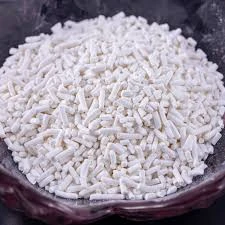
Exploring the Benefits of Using Liquid Fertilizers for Enhanced Plant Growth
The Benefits and Applications of Liquid Fertilizer
In an era where sustainable agriculture is becoming increasingly important, farmers and gardeners alike are constantly seeking effective ways to improve soil fertility and promote plant growth. One approach gaining prominence is the use of liquid fertilizers. This article delves into what liquid fertilizers are, their benefits, and how to use them effectively in various agricultural contexts.
Understanding Liquid Fertilizers
Liquid fertilizers are concentrated nutrient solutions that provide plants with essential macro and micronutrients. Unlike traditional granular fertilizers, which are often applied directly to the soil, liquid fertilizers are typically mixed with water and can be applied through irrigation systems or sprayed directly onto plant foliage. This method offers a number of advantages that enhance nutrient absorption and effectiveness.
Advantages of Liquid Fertilizers
1. Rapid Nutrient Absorption One of the most significant benefits of liquid fertilizers is their fast-acting nature. When applied, nutrients are immediately available for plant uptake, leading to quicker response times when compared to granular alternatives. This is particularly beneficial during critical growth stages, such as flowering or fruiting.
2. Precision Application Liquid fertilizers allow for precise application, enabling farmers to target specific plants or areas of a field that may require additional nutrients. This targeted approach not only maximizes nutrient use efficiency but also minimizes waste and environmental impact.
3. Improved Mixing & Compatibility Liquid fertilizers can easily be mixed with other agricultural products, such as pesticides and herbicides, in a single application. This can save time and reduce the number of passes needed through a field, translating to lower energy costs and reduced soil compaction.
4. Enhanced Foliar Feeding Foliar application of liquid fertilizers can provide plants with an immediate source of nutrients, bypassing the soil entirely. This method is particularly effective in quickly correcting nutrient deficiencies and is often used to supplement soil applications.
liquid fertilizer

5. Customizable Formulations Liquid fertilizers come in various formulations tailored to specific crop needs. Farmers can choose fertilizers that contain the right ratio of nitrogen (N), phosphorus (P), potassium (K), and micronutrients based on the specific requirements of their crops or the results of soil tests.
Applications of Liquid Fertilizers
Liquid fertilizers can be utilized in various agricultural practices, including conventional farming, organic agriculture, and home gardening. Here are some common applications
1. Row Crops Farmers growing row crops such as corn, soybeans, and tomatoes often use liquid fertilizers to provide essential nutrients throughout the growing season. Application can be done during planting, mid-season, or as a supplement during critical growth phases.
2. Greenhouses and Nurseries Liquid fertilizers are popular in greenhouse settings where precise control over nutrient delivery is crucial for optimizing plant health and growth. They allow growers to meet the specific nutritional needs of young plants, ensuring strong root development and lush foliage.
3. Fruit and Vegetable Gardens Home gardeners can benefit from liquid fertilizers by enhancing the nutrient status of their garden soil. By applying a diluted liquid fertilizer during the growing season, gardeners can promote healthy plant growth, increased yields, and improved produce quality.
4. Hydroponics In hydroponic systems where plants are grown in a soil-less environment, liquid fertilizers are indispensable. They provide all the necessary nutrients in a soluble form, ensuring that plants receive exactly what they need for optimal growth.
Conclusion
Liquid fertilizers represent a versatile and effective solution for enhancing soil fertility and promoting healthy plant growth across various agricultural practices. Their rapid absorption, precision application, and ability to be customized for different crop needs make them a valuable tool for modern agriculture. As the demand for sustainable farming practices continues to grow, the role of liquid fertilizers is likely to become even more significant, helping to ensure food security and environmental stewardship for future generations. Understanding their benefits and applications can empower farmers and gardeners to make informed decisions that ultimately lead to healthier crops and more sustainable agricultural practices.
-
nitrile-rubber-honoring-strict-production-standardsNewsAug.22,2025
-
aspartame-ingredients-honoring-food-safety-valuesNewsAug.22,2025
-
fertilizer-for-balanced-plant-nutritionNewsAug.22,2025
-
cyanide-gold-processing-with-high-purity-additivesNewsAug.22,2025
-
formic-acid-in-textile-dyeing-applicationsNewsAug.22,2025
-
aluminum-hydroxide-gel-in-skincare-productsNewsAug.22,2025
-
Regulatory Compliance for Global Mining Chemicals UseNewsAug.12,2025
Hebei Tenger Chemical Technology Co., Ltd. focuses on the chemical industry and is committed to the export service of chemical raw materials.
-

view more DiethanolisopropanolamineIn the ever-growing field of chemical solutions, diethanolisopropanolamine (DEIPA) stands out as a versatile and important compound. Due to its unique chemical structure and properties, DEIPA is of interest to various industries including construction, personal care, and agriculture. -

view more TriisopropanolamineTriisopropanolamine (TIPA) alkanol amine substance, is a kind of alcohol amine compound with amino and alcohol hydroxyl, and because of its molecules contains both amino and hydroxyl. -

view more Tetramethyl Thiuram DisulfideTetramethyl thiuram disulfide, also known as TMTD, is a white to light-yellow powder with a distinct sulfur-like odor. It is soluble in organic solvents such as benzene, acetone, and ethyl acetate, making it highly versatile for use in different formulations. TMTD is known for its excellent vulcanization acceleration properties, which makes it a key ingredient in the production of rubber products. Additionally, it acts as an effective fungicide and bactericide, making it valuable in agricultural applications. Its high purity and stability ensure consistent performance, making it a preferred choice for manufacturers across various industries.





